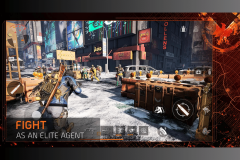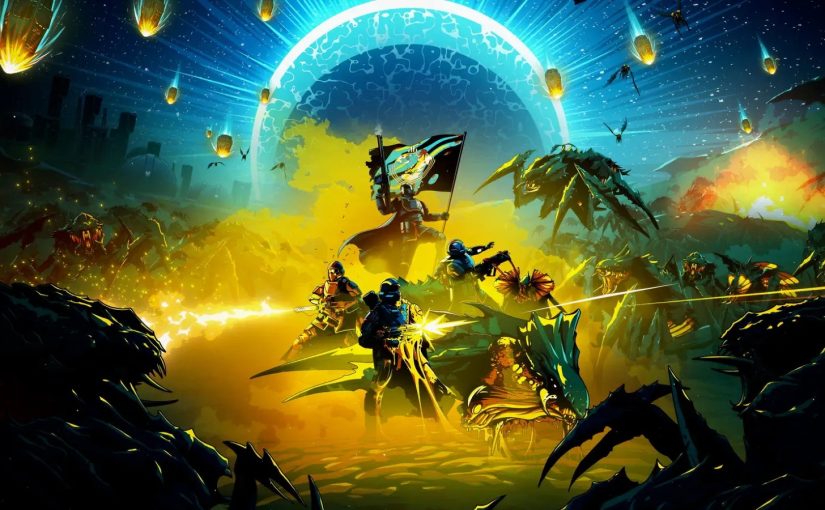ArtGame weekend is a creative and collaborative challenge that brings together developers, game designers, and artists to create mobile artgames.

The first ArtGame weekend took place in Paris, France last month. By combining art plus gameplay plus open collaboration, nine ideas became nine artgames – and more than 40 artists, developers, and video game professionals an intense teamwork experience.
As you can imagine, we learned a lot. Here are 10 lessons we’d like to share with you.
Guest author Julien Dorra organized the first ArtGame weekend in Paris with Nod-a and Silicon Sentier. Charlotte and Howie Liu assisted in the editing.
1: “With more time, we would have created a less good game,”Brice Roy
Having a tight time constraint forces you to find the core idea, the thing you can’t do without.
Constraints are good for creativity – they make you create better artwork, better games, better projects.
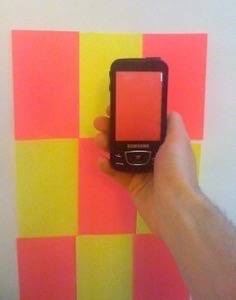
DIY color test chart with sticky notes for Balade
2: Starting to build something answers all the questions about what to do next.
Idea, prototype, test. Start to build something in small iterations, just like the Number32 team did. They started out with strictly no idea about what type of gameplay to use, but ended up adopting the one most appropriate to the small world they created.
Iterate and you’ll end up answering your questions about what your creation must look like.
3: You can build great teams out of complete strangers. Instantly.
Here is the recipe for instant team building: Give each potential team member the opportunity to talk in front of everyone about what she likes and which ideas she wants to push further. Give some general directions about diversity and size in a team. Finally, just let everybody match themselves with the right team.
4: Comfort, good food, and care help people focus on their creation.
Create an environment where people don’t even have to think about getting food, Wi-Fi, and support because it’s already here when needed.
When a full support team cares for you, you can focus more on your goals and how to attain them.
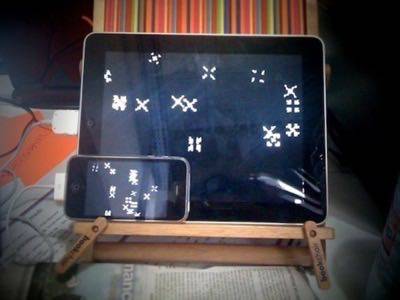
Permanent test bench for Number32
5: “You need to lose a little time to gain more time,”Ebene Zolli
Even when facing a brutal deadline, you don’t have to rush. Sleep and take breaks. You will more than regain the time spent.
Jonathan Perret used the Pomodoro Technique to force himself to take five minutes breaks every 25 minutes. The result? He had an iPad artgame completed at the end of the weekend.
6: Steps and goals are useful, but help people create ad-hoc processes as they go.
You don’t need to set-up a full-blown methodology before starting. You do need to choose the right creative and organizational process for the task at hand. But as tasks change, you will need to change how you manage them too.
Your methodology is an iterative creation.
7: A team needs regular reality-checks by outsiders. Who is your coach?
You will be blinded. You will lose sight of your core goals and objectives. Having an outsider asking you the right questions can help you stay on track. At ArtGame weekend, around 10 coaches and facilitators helped the teams get the most of the weekend.
8: You can mix good competition with great cooperation. That is coopetition.
Competing doesn’t mean working against others. Outcomes are far greater for everybody when you cooperate with your competitors — just look at the open source ecosystem.
Find something that you and all your competitors can share and build in common, publicly.
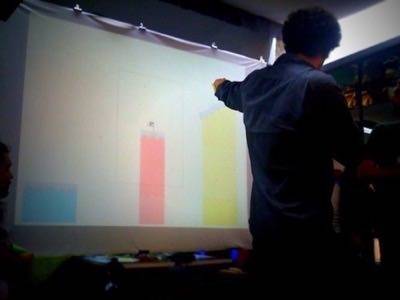
Sunday, presentation of Générations
9: Hardware matters on mobile. Camera, accelerometers, multitouch changes everything.
The hardware is the key to innovative software on mobile platforms, just as the browser is the key to innovative web apps. For example, gyroscopes will add a new level of precision in measuring how a mobile phone is moving.
Keep an eye on hardware adoption. Beware of fragmentation.
10: Working in the open brings help, attention, and fresh points of view.
Obscurity is the real enemy for most of the new projects you want to launch. Be open and bring outsiders in.
Working in an open way will get you more visibility, will push people to give you advice, and will make it easier to ask for help when needed.
11: Bonus lesson: Networking is not exchanging business cards. It’s sharing views, goals, and experiences with people.
Most networking events fail to really connect people. You gather business cards, maybe send an email or two… but really, you just don’t know the people you met, so what’s the point?
When you share a real experience with others, be it at a Barcamp, online, or during an intense weekend of work and fun like the ArtGame weekend, you know the people, what they think, what they like, and what you could do together.
You are networking at a far more profound level.
Lead photo: The jury table, full of devices by Nirina Thibault. All other photos by Julien Dorra.
